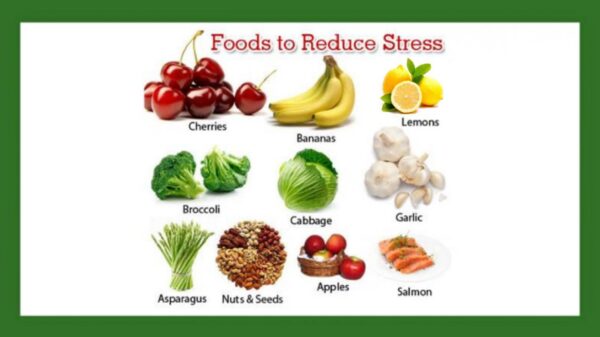Reduce stress by eating!
It is almost inconceivable that you are never exposed to stress. To prevent this stress from becoming chronic and driving you towards burnout, a proper diet can certainly help you. Yet nutrition as a supporting element of recovery still receives too little attention. Although it can never be the only solution for stress or burnout complaints, it is an important component to get a grip on this.
Food to avoid in case of stress complaints and burnout
- Sugar: a lot of sugar – due to the fast insulin response – throws your blood sugar level and therefore your energy level out of balance. But also sweeteners and therefore all foods that contain sugar: cane sugar, granulated sugar, corn syrup, glucose (syrup), fructose, HFCS, milk sugar, soft drinks and concentrated fruit juices.
- Caffeinated drinks: They increase your already elevated cortisol level and increase a feeling of stress or edginess.
- All industrially processed food products.
- Too much saturated fats, including trans fats and processed fats such as in cookies and pastries.
- Foods to which you are hypersensitive or addicted.
- Alcohol, nicotine and stimulants should of course be avoided.
Recommended food for stress and burnout
‘Eat fresh, organic, pure and natural’, that is a guideline that you should always use. If you neglect this, your defenses will also disappear and you will be more susceptible to negative stress.
- Minerals: Calcium, magnesium, sodium and potassium are macro elements. Magnesium is the anti-stress mineral because it has a relaxing and calming effect on muscles and blood vessels. The balance between calcium and magnesium ensures the balance in the body of tension and relaxation. Magnesium can be found in: nuts (cashew, almonds), bananas, raisins, avocado, seeds, kelp, garlic, seaweed, shellfish, whole grains, quinoa and bitter chocolate. In addition, manganese, zinc, chromium and selenium are also important minerals for our body.
- Omega 3 fatty acids: These play a positive role in the regulation of serotonin production in the brain, which is important for a feeling of calm and self-confidence. Omega 3 is found in walnuts, linseed and oily fish such as salmon, sardines, mackerel, herring and eel.
- Green tea: This tea contains L-theanine, an amino acid with a positive effect on dopamine and serotonin, which determines your mood.
- Vitamin B: Different members of the vitamin B family have an impact on varying aspects of stress adaptation physiology. Persistent stress robs your B vitamins. Vitamin B can be found in beans, asparagus, peas, mushrooms, brown rice, broccoli, avocado, lentils, eggs, whole grain products, bananas, brown rice, nuts and seeds.
- Vitamin C: Vitamin C is crucial for adrenal function and for maintaining healthy levels of cortisol and DHEA. The balance between DHEA and cortisol plays a very important role in the prevention of burnout and other stress-related conditions. Broccoli, peppers, garlic, strawberries, watercress, blackberries, citrus fruits, tomatoes, cauliflower and alfalfa are rich in vitamin C.
- Phytotherapy: Phytotherapy literally means plant medicine or herbal medicine. Like homeopathy, it is a natural medicine. Certain plants are very useful against stress because they have a calming effect
- Nutrients to support thyroid function: The thyroid gland is the big regulator of our metabolism. Nutrients important for proper thyroid function reduce the risk of stress complications. Examples include bladderwrack (an algae found along the coasts of Europe and North America) or nutrients containing zinc, vitamins E, A, or D.
Products with which you can prepare optimal anti-stress food:
- Plenty of whole grain products such as oats, rice (basmati or whole rice), muesli, millet, whole wheat and wheat germ, spelt, rye and also bulgur, couscous and polenta.
- Plenty of vegetables: especially green, red, yellow and violet vegetables and potatoes.
- Fruits: especially bananas, dates, figs, all kinds of berries, apple and grapes.
- Oily fish: organic salmon, tuna, herring, sardines and mackerel.
- High-quality vegetable oils: rapeseed, linseed, walnut, soybean and olive oil.
- Legumes: beans, lentils, chickpeas and soy.
- Nuts and seeds.
- Low-fat dairy products, little meat and little sweets.

